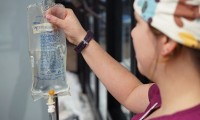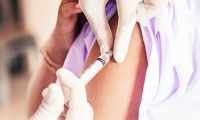-
Shortage in Drug Supplies, According to FDA
- Source: FiercePharma
- 981
- June 22, 2018
-
Dentists, Orthodontists to be Encouraged to use Telemedicine
- Source: mHealthIntelligence
- 813
- June 22, 2018
-
Shingrix Orders Limited by GlaxoSmithKline
- Source: FiercePharma
- 901
- June 22, 2018
-
FHIR to Support EHR Data Sharing
- Source: HealthcareIT News
- 955
- June 21, 2018
-
Patient Capital Program for Start-ups of £2.5 Billion Created by U.K.
- Source: Fierce Biotech
- 876
- June 15, 2018
-
FDA Considering Comments on SaMD Precertification Program
- Source: Healthcare Info Security
- 917
- June 14, 2018
-
Consumers’ Favourite for Sending Healthcare Data is Secure Texting
- Source: HealthIT Security
- 998
- June 13, 2018
-
Chinese Biologics Company to invest $ 60 Million in Massachusetts for Manufacturing Facilities
- Source: Forbes
- 933
- June 12, 2018
-
WHO Praises India for Progress in Reducing Maternal Mortality
- Source: Latestly
- 1,201
- June 12, 2018
-
HHS Selects 8 Accelerators for AI Innovation
- Source: Health ITAnalytics
- 1,044
- June 11, 2018
your submission has already been received.
OK
Subscribe
Please enter a valid Email address!
Submit
The most relevant industry news & insight will be sent to you every two weeks.













